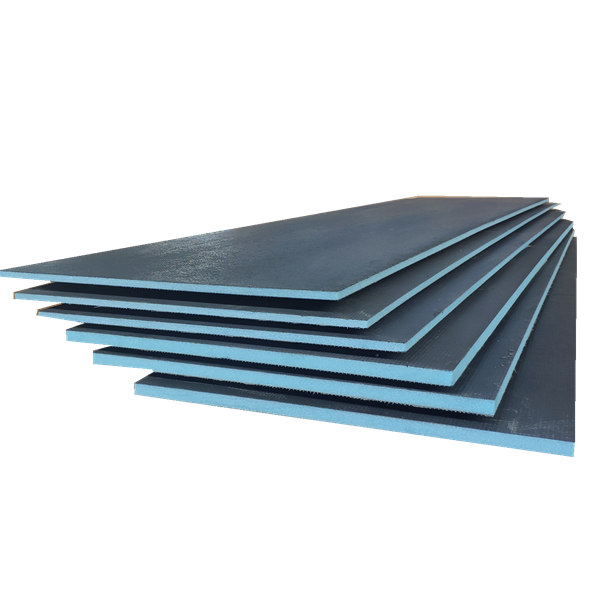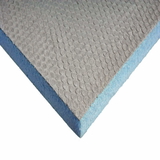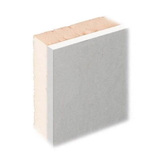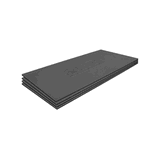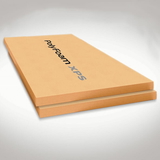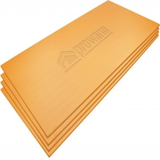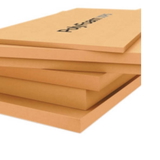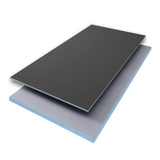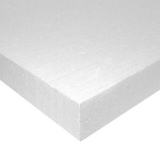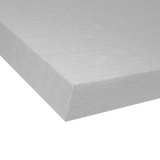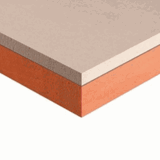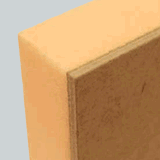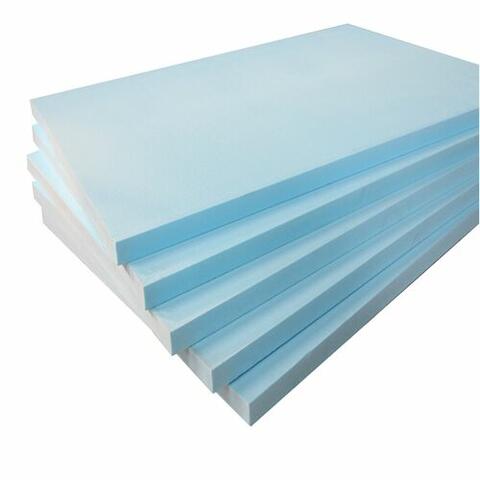- Blogs
- The Benefits and Disadvantages of Extruded Polystyrene Insulation
The Benefits and Disadvantages of Extruded Polystyrene Insulation

If you're looking to make your home more energy-efficient, reduce utility costs, and enhance overall comfort, then you've come to the right place. In this blog, we'll explore the ins and outs of extruded polystyrene (XPS) insulation, a popular choice among homeowners and construction professionals alike.
Extruded polystyrene insulation offers a range of benefits that make it an excellent option for both new construction and refurbishment projects. From its exceptional thermal performance to its moisture resistance and durability, this foam insulation board has proven its effectiveness in creating energy-efficient and sustainable buildings.
What is Extruded Polystyrene Insulation? ![]()
Extruded polystyrene (XPS) is a type of rigid foam insulation material made from polystyrene, a synthetic polymer derived from petroleum. The manufacturing process involves melting the polystyrene beads and then extruding them through a dye to form a continuous, closed-cell structure.
The resulting foam boards have a smooth, dense surface and a uniform structure. They are available in various thicknesses, densities, and dimensions to suit different insulation requirements.
What is XPS Insulation Used For?
Below are a few examples of the versatile applications of extruded polystyrene insulation:
-
Wall Insulation: XPS insulation is commonly used to insulate exterior walls, providing a thermal barrier that reduces heat loss or gain. It helps improve energy efficiency, maintain consistent indoor temperatures, and reduce heating and cooling costs.
-
Roof Insulation: XPS insulation is an effective choice for insulating roofs, whether it's flat roofs, pitched roofs, or inverted roofs. It helps prevent heat transfer between the building and the outside environment, reducing the need for excessive heating or cooling.
-
Floor Insulation: XPS insulation can be installed under concrete slabs or floor finishes to minimise heat loss and enhance thermal comfort. XPS boards with higher compressive strength making them ideal for floor insulating purposes. It is commonly used in both residential and commercial buildings to improve energy efficiency and provide a barrier against cold floors.
Why use Extruded Polystyrene Insulation?
There are several compelling reasons to use extruded polystyrene (XPS) insulation in construction and building projects. Here are some key benefits:
-
Excellent Thermal Performance: XPS insulation provides high thermal resistance, effectively reducing heat transfer through building components. It helps maintain consistent indoor temperatures, improves energy efficiency, and reduces heating and cooling costs.
-
Moisture Resistance: XPS insulation has a closed-cell structure that makes it highly resistant to moisture absorption. Its moisture resistance helps protect against mould, mildew, and rot, promoting a healthier indoor environment.
-
Durability and Longevity: XPS insulation is known for its strength and durability. It can withstand heavy loads without deforming or compressing, making it suitable for load-bearing applications. It has a long lifespan and retains its insulation properties over time, providing long-term energy efficiency benefits.
-
Versatility: XPS insulation is available in various thicknesses, densities, and dimensions, offering flexibility in meeting different insulation requirements. It can be used on walls and floors, adapting to diverse construction applications.
- Lightweight: XPS insulation is lightweight compared to some other insulation materials. This makes it easier to handle, transport, and install, reducing labour and installation costs.
- Building Regulation Compliance: XPS insulation typically meets or exceeds building regulation requirements for thermal insulation. It is recognised and accepted by building authorities, making it a trusted and widely used insulation material.
By choosing extruded polystyrene foam insulation, you can improve energy efficiency, enhance building comfort, protect against moisture damage, and contribute to sustainable construction practices. Its combination of thermal performance, durability, and versatility makes it a reliable choice for various insulation needs.
Buy extruded polystyrene insulation
EPS Insulation Vs XPS Insulation
Both extruded polystyrene (XPS) and expanded polystyrene (EPS) have their own advantages and considerations, and the choice between the two depends on specific project requirements. Here's a comparison between XPS and EPS insulation: 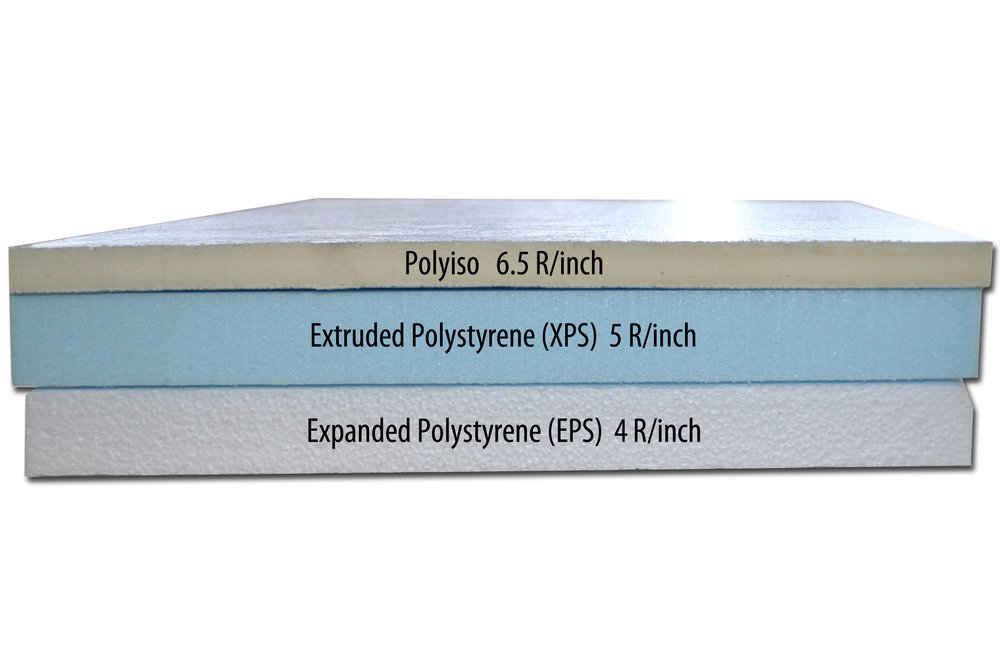
-
Insulation Performance: XPS insulation typically has a higher R-value (thermal resistance) per inch compared to EPS insulation. This means that XPS provides slightly better insulation performance for a given thickness. However, both materials offer good thermal insulation properties.
-
Moisture Resistance: XPS insulation has better moisture resistance than EPS. Its closed-cell structure makes it highly resistant to water absorption, while EPS is more susceptible to moisture penetration.
-
Compressive Strength: XPS insulation has higher compressive strength than EPS. It can withstand heavy loads without significant deformation, making it suitable for applications requiring load-bearing capacity, such as insulating plaza decks or under concrete slabs.
-
Cost: EPS insulation is generally cheaper than XPS insulation. EPS is more cost-effective for many applications, especially when a higher compressive strength or exceptional moisture resistance is not required.
- Installation and Handling: Both XPS and EPS insulation are lightweight and easy to handle. They can be cut, shaped, and installed using similar methods. EPS insulation is typically available in larger panel sizes, which can speed up installation.
XPS insulation generally offers higher moisture resistance and compressive strength compared to EPS insulation, but it tends to be more expensive. EPS insulation, on the other hand, is cost-effective and offers good insulation performance, making it suitable for many projects. However, the choice between XPS and EPS depends on the specific requirements, budget, and priorities of the project.
What are the Disadvantages of Extruded Polystyrene Insulation?
Some key disadvantages of XPS insulation:
- Environmental impact: Derived from petroleum, limited recyclability.
- Global Warming Potential: Higher compared to some other insulation materials.
- Limited recyclability: Challenging to recycle due to its closed-cell structure.
- Vulnerability to UV exposure: Can degrade when exposed to sunlight.
- Health concerns: Potential emissions of VOCs during manufacturing.
- Cost: Generally more expensive than some alternative insulation materials.
Frequently Asked Questions:
Will XPS foam insulation block sound?
XPS foam insulation provides some sound-blocking properties due to its dense and rigid structure, but it is not specifically designed as a soundproofing insulation
Is Extruded Polystyrene a good insulator?
Yes, extruded polystyrene (XPS) is considered a good insulator. It has excellent thermal insulation properties, meaning it effectively reduces heat transfer through walls, roofs, floors, and other building components. XPS insulation's closed-cell structure minimises air movement and heat conduction, providing high levels of insulation performance. It helps maintain consistent indoor temperatures, improves energy efficiency, and reduces heating and cooling costs.
Buy extruded polystyrene insulation
Is Extruded Polystyrene Insulation Recyclable / Environmentally Friendly? ![]()
Extruded polystyrene (XPS) insulation has some environmental considerations. While it offers energy-saving benefits and durability, there are aspects that may be less environmentally friendly:
-
Raw Materials: XPS insulation is derived from petroleum, a non-renewable resource. The extraction and processing of petroleum have environmental impacts, including carbon emissions and habitat disruption.
-
Manufacturing Process: The manufacturing of XPS insulation requires energy and involves the use of blowing agents, which can contribute to greenhouse gas emissions and have a global warming potential.
-
Limited Recyclability: This polystyrene foam insulation board is less commonly recycled compared to other insulation materials like expanded polystyrene (EPS). The closed-cell structure of XPS makes recycling more challenging, and proper disposal at the end of its life cycle is essential to minimize environmental impact.
However, it's worth noting that manufacturers are taking steps to improve the environmental profile of XPS foam boards. This includes increasing the use of recycled content, exploring alternative blowing agents with lower global warming potential, and developing more recycling options.
Buy extruded polystyrene insulation
In Conclusion:
In conclusion, extruded polystyrene insulation offers significant benefits in terms of thermal performance, moisture resistance, and durability. It is an effective choice for enhancing energy efficiency, reducing heating and cooling costs, and creating comfortable living spaces.
To make the most informed decision, it is crucial to weigh the advantages and disadvantages of XPS insulation against specific project requirements, budget constraints, and environmental considerations. Additionally, staying updated on advancements in XPS insulation technology and recycling initiatives can contribute to making more sustainable choices.
By understanding the properties, applications, and potential environmental implications of extruded polystyrene insulation, homeowners, construction professionals, and DIY enthusiasts can make informed decisions and contribute to creating energy-efficient, comfortable, and sustainable buildings.
For top-rated XPS foam boards visit Buy Insulation Online. We stock xps boards from leading brands like Polyfoam, Prowarm and others. In addition to foam insulating materials like PIR boards and expanded polystyrene, we also stock loft insulation batts and boards, multifoil insulation and a wide eco-insulation range. By purchasing insulation online from us, you also improve your carbon footprint!

Samuel Hitch
Managing Director
Buy Insulation Online.
Leave A Reply
Your feedback is greatly appreciated, please comment on our content below. Your email address will not be published. Required fields are marked *
